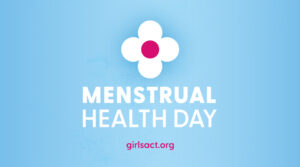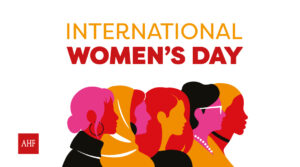La preparación para el sexo anal inicia mucho antes de que, siquiera, las dos personas que lo van a practicar se encuentren. No solo las fantasías y el deseo pueden comenzar con gran anticipación, sino porque también es recomendable que tengas todo listo para ese momento.
Además de condones y lubricante a base de agua o silicona, también te conviene prestar atención a tu alimentación. A algunas personas que reciben una penetración anal les preocupa la higiene de esa zona, por lo que pueden recurrir a enemas (que no son tan recomendables, como ya te contamos aquí) o lavado excesivo, los cuales podrían irritar la piel del ano o la mucosa rectal.
Cambiar algunos detalles de tu dieta podría evitarte tantos pasos de preparación justo antes de tener sexo anal, y de paso ayudaría a mejorar tu digestión, lo que a su vez contribuiría a disminuir problemas como las hemorroides.
La Importancia de la Fibra en tu Dieta para el Sexo Anal
Muchas veces hemos oído hablar de la fibra y su importancia en la alimentación. Más que solo ideas al aire, esta es una verdad muy relevante para quienes gustan del sexo anal.
Tipos de Fibra y sus Beneficios para el Sexo Anal
Hay que tomar en cuenta, por ejemplo, que existen dos tipos de fibra, de acuerdo con el nutriólogo Daniel O’Shaughnessy, quien es autor del libro Naked Nutrition (Nutrición desnuda), una guía para la correcta alimentación y la salud de las personas de la diversidad sexual.
En una entrevista que sostuvo con el portal web Thebody.com, O’Shaughnessy explicó que un tipo es la fibra soluble, la cual tiene beneficios metabólicos como evitar el estreñimiento y prevenir la aparición de hemorroides. El otro tipo es la fibra insoluble, que actúa como un agente aglutinante y ayuda a la movilización de las heces fecales en su trayecto por el intestino.
Como ejemplos, la fibra soluble se encuentra en la avena, la cebada, las nueces, las semillas, los frijoles, las lentejas, los chícharos o arvejas y la mayoría de las frutas y vegetales.
La fibra insoluble la puedes encontrar en granos enteros como arroz integral, salvado de trigo, nueces, frijoles y algunos vegetales como coliflor y papa. Como verás, la mayoría de los alimentos de origen vegetal contienen ambos tipos de fibra. Por ejemplo: una manzana tiene fibra soluble en su pulpa y fibra insoluble en la cáscara.
Estrategias Alimenticias para una Experiencia Anal Libre de Preocupaciones
Lo anterior no significa que cualquier fibra te dará un colon libre de residuos y molestias. La estrategia para evitar contratiempos durante una penetración anal implica limitar el consumo de fibra insoluble unas 24 horas antes de la actividad sexual.
Disminuye tu consumo de granos enteros optando por arroz blanco en lugar de integral y come tus vegetales y frutas sin cáscara.
O’Shaughnessy
También es importante que identifiques si algunos alimentos te producen problemas digestivos, como gases, inflamación o heces demasiado blandas o sin consistencia. Evita esas comidas, en especial los platillos picantes, el huevo, la carne roja, la cafeína, el alcohol y la comida chatarra, que suelen ser los que más comúnmente producen las mencionadas molestias.
Si no acostumbras comer mucha fibra, inclúyela poco a poco en tu dieta, pues consumir gran cantidad puede acarrear un exceso de gases.
Conoce tu Cuerpo y Disfruta del Placer con Seguridad
Cuando te preparas para el sexo anal, tan importante es lo que deberías comer como lo que no deberías ingerir. Un “no” rotundo son los lácteos: leche, crema, yogurt, crema, queso y proteínas como las que se usan con el ejercicio, ya que contienen suero de leche. O’Shaughnessy explica que suelen ser estos alimentos los que provocan heces inconsistentes.
En cuanto a las carnes rojas, aunque no son tan preocupantes como los lácteos, también deberían ser limitadas, ya que algunas personas no digieren bien sus grasas y proteínas. Si no quieres privarte de este alimento, una sugerencia es que mastiques muy bien tu platillo. La grasa es otro elemento con el que has de tener precaución, pues en ocasiones es difícil de digerir.
Conoce tu cuerpo y disfruta
Aunque pueden parecer demasiadas instrucciones, estas ideas son, en realidad, una gran inversión a largo plazo. Por un lado, pones más atención en el funcionamiento de tu cuerpo, de lo que le beneficia y lo que le perjudica, y por otro, te ahorras momentos indeseados o bochornosos en un contexto en el que lo que se busca es el placer.
Y no olvides que para disfrutar con seguridad, el condón y el lubricante son tus mejores aliados. Si quieres obtener condones gratis, en AHF América Latina y el Caribe los tenemos para ti. Además, hacemos pruebas de VIH sin costo. Localiza nuestras oficinas en tu país y conoce todos nuestros servicios.





